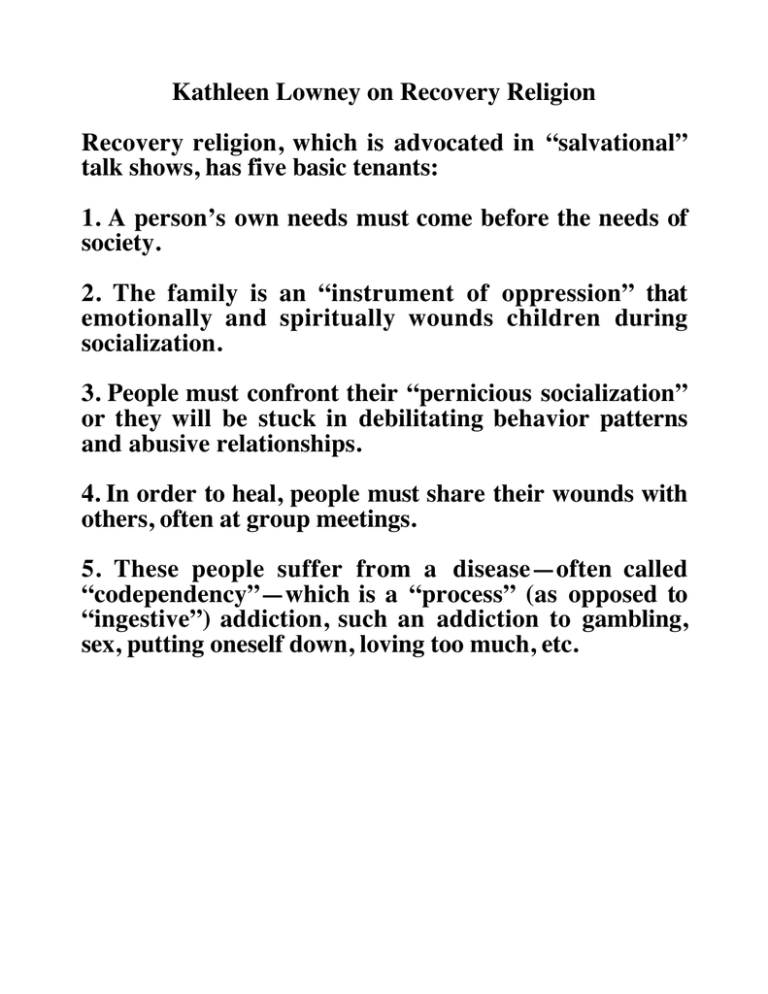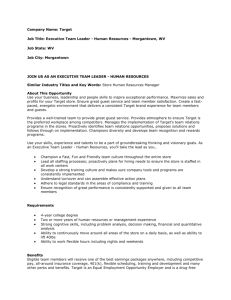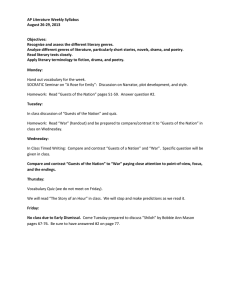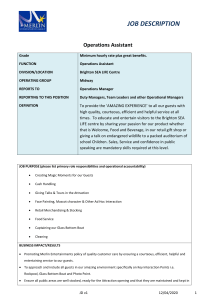Kathleen Lowney on Recovery Religion talk shows, has five basic tenants:
advertisement

Kathleen Lowney on Recovery Religion Recovery religion, which is advocated in “salvational” talk shows, has five basic tenants: 1. A person’s own needs must come before the needs of society. 2. The family is an “instrument of oppression” that emotionally and spiritually wounds children during socialization. 3. People must confront their “pernicious socialization” or they will be stuck in debilitating behavior patterns and abusive relationships. 4. In order to heal, people must share their wounds with others, often at group meetings. 5. These people suffer from a disease—often called “codependency”—which is a “process” (as opposed to “ingestive”) addiction, such an addiction to gambling, sex, putting oneself down, loving too much, etc. Some dramaturgical elements of talk shows Front stage-back stage: Preparation for the performance (front stage) takes place back stage, where team members work to enhance the performance. Frames: schemes of interpretation (conventions) that allow people to understand what is going on. Lowney proposes three talk show frames: entertainment, informational, salvational. The salvational shows attempt “to rescue people (usually in-studio guests, but more broadly understood, home audience members as well) from destructive, sick, deviant lifestyles, relationships, or groups.” (p. 30) The “opening frame” cues the audience as to what type of show to expect. Staging: Costumes and sets help establish what is going on. Characters (dramatis personae): “The primary means by which talk shows particularize a social problem category available in public discourse is through the production of victims and victimizers. These person-type categories are interactionally created via a metaphorical scripting process wherein hosts and their production staffs construct a set of individuals to place before camera and tell their stories.” (p. 40) Victims: Their suffering is the central narrative. They are introduced first and are given the opportunities to tell their stories. (Secondary victims, e.g., parents, have been effected by another person’s victimization.) Victimizers: They have less opportunity to explain themselves and may not even be present. If they are present, they will be pressed to “convert” and seek recovery. Host: They provides continuity between shows, diagnoses problem, and guides performances. Experts: They clarify and augment victim testimony with psychological concepts. Audience: Their role varies from show to show, but they may challenge guests or act as “Greek chorus.” “The shows’ production work has one on-screen intended goal, the conversion of guests.” (p. 63)



